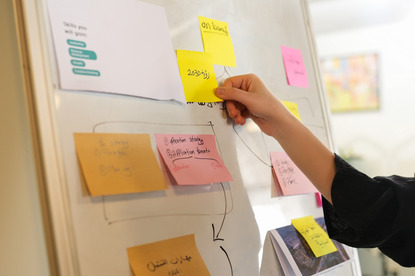
What moment shaped your leadership and decision-making style? In a dialogue at the Misk Global Forum 2024, Khaled Khalid Abdullah Albaker, CEO of the Quality of Life Program, reflected on his leadership journey:
“A person is shaped by many moments—life experiences, challenges, education, professional ventures, and even social events and family influence. All of these shape how one sees leadership and makes decisions.”
For Albaker, leadership maturity isn’t an overnight occurrence—it’s a layered outcome of diverse encounters.
How Does a Leader Make Time to Grow?
Balancing daily demands with self-development is one of leadership’s greatest challenges. According to Albaker, the answer lies in surrounding oneself with a capable team, setting clear priorities, adapting to change, and most importantly—listening. These are what allow a leader to keep evolving.
The Quality of Life Program: A Strategic Vision for a Brighter Future
The Quality-of-Life Program is one of the flagship initiatives under Vision 2030, driving more than 120 projects aimed at enriching everyday life for all segments of society. The program targets six main sectors:
It operates under two main pillars:
From Vision to Impact: Initiatives That Make a Difference
The strength of the program lies not only in its vision, but in its ability to translate that vision into tangible results. More than 120 initiatives are currently underway, many of them youth-focused.
Among the highlights, Albaker cited the Fakher program—an inclusive sports initiative for individuals with disabilities, launched in partnership with the Ministry of Sports. One powerful story emerged when a beneficiary named his daughter “Fakher,” a heartfelt tribute to the impact the initiative had on his life.
Albaker also noted that several Vision 2030 targets have already been achieved well ahead of schedule:
From Recipient to Contributor: Youth Take the Lead
One of the most profound shifts driven by the program is how it redefined the role of Saudi youth—from passive recipients to active contributors and investors in national growth.
New doors have opened in previously untapped sectors like culture, entertainment, and tourism. Young Saudis are stepping up not just as participants, but as creators, entrepreneurs, and professionals helping fuel the Kingdom’s economic engine.
To lead this transformation, Albaker emphasized the importance of equipping youth with essential traits such as:
In conclusion, With a clear vision and results grounded in measurable impact, the Quality of Life Program proves that transformation isn’t just a promise—it’s a visible, daily reality.
Quality of life is no longer a luxury—it’s a national priority. It’s about unlocking human potential, fostering leadership, and empowering a generation to imagine, build, and own the future of their country.